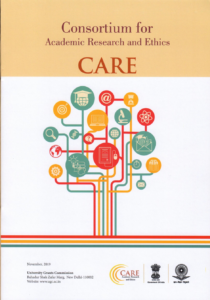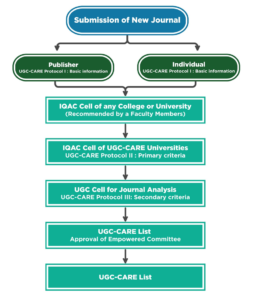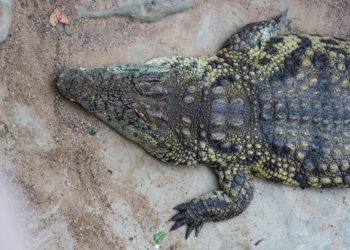Predatory journals find most of their prey in developing countries, and in particular, among emerging economies where research output is rapidly growing. Bhushan Patwardhan is a biomedical researcher and Professor of Health Sciences at Savitribai Phule Pune University (SPPU) of India, and the founder and Editor-in-Chief of Journal of Ayurveda and Integrative Medicine, published by Elsevier. He is also the current Vice Chairman of the University Grants Commission (UGC) which plays a key part in India’s anti-predatory journals efforts. In this interview, Professor Patwardhan tells us about India’s battle against predatory journals.
Can you tell us about the UGC and its mission?
The University Grants Commission (UGC) is a statutory organization established by the Government of India for the coordination, determination, and maintenance of standards of teaching, examination, and research in university education. To deal with the problem of predatory journals, UGC created a white list of quality journals as a proactive step. However, due to some flaws during the list’s creation and implementation, it was polluted with poor-quality journals and faced severe criticism. A large number of poor-quality journals were included in the UGC approved list, which opened the floodgates for desperate authors. Nevertheless, the UGC India was the only one of the ten most common funders who provided guidance about journal selection on its website .
As a researcher and professor, how did you get involved in the UGC?
As a member of COPE, I have been keeping track of predatory publishers. It was noticed in 2015 that a large number of faculty members from Indian universities were falling prey to predatory publishers, and hence an effort to prepare ‘Guidelines for Research Publications’ was undertaken at SPPU. In 2017, a Center for Publication Ethics was established. We created a group of like-minded academicians and developed a robust protocol to analyze the UGC list, and found that over 88% of journals recommended by universities for inclusion in the UGC list were of poor quality. The results were published on 25th March 2018 in Current Science and attracted attention from media, the academic community, and regulators. Our efforts to curate the UGC approved list of journals resulted in the removal of over 3,000 predatory journals from the original list of nearly 5,000 titles. As of now the UGC approved list of Journals stands canceled and is replaced with UGC-CARE Reference List of Quality Journals (UGC-CARE List).

At UGC you initiated the CARE Project as an effort to fight against predatory journals. What is the background of the initiative?
While Indian science has shown a marked growth in high-quality scientific publications, it has also been reported that the percentage of research articles published in predatory journals is high in India. Despite good intentions, the regulatory provisions of UGC seemed to have triggered a sudden spurt in predatory journals, giving way to ‘publish or perish’ culture. An ineffective monitoring of research quality coupled with desperation to publish for regulatory compliance have led to massive growth of predatory publications in India. To understand this rapid penetration of predators in the Indian academic community, it is necessary to understand the vastness, diversity and complexity of the Indian higher education system. India still follows an affiliating system of British origin, where, by and large, over 40,000 colleges deal with undergraduate instruction, while over 900 universities are entrusted with post-graduate education and research. As per All India Survey on Higher Education (AISHE) 2018-2019 data, about 1.285 million teachers are in the system to take care of 36.6 million students, of which 4.14 million are in Masters programs and 161,000 in doctoral programs. In 2018, about 34,400 students were awarded PhD degrees. The Government of India awards nearly 10,000 research fellowships every year. According to Scopus data, 147,537 articles were published by Indian authors in 2018. The majority of them are from over one hundred institutes of national importance and a large number of national laboratories managed by different research councils. A typical Indian university is meant for degree education, whereas national institutes and laboratories are mandated for research. Such bifurcation seems to be a major reason for poor research culture in most Indian universities. The situation is now rapidly changing for good through systematic efforts by the government to promote inter-institutional collaborations and transdisciplinary research, and by creating more awareness regarding academic integrity and publication ethics through initiatives like UGC-CARE.
Can you introduce the UGC-CARE Project?
I was invited to join the UGC Journal Steering Committee, and was appointed as Vice Chairman of UGC in September of 2018.
 As the Vice Chairman of UGC I had the opportunity to take firmer steps to defeat the menace of predatory journals. We followed a principle of management used in quality assurance known as Corrective And Preventive Action (CAPA). We realized that the Indian academic community, including teaching faculty, scientists, and research scholars need to ensure that the journals and/or conferences they choose follow standard ethical policies. They also need dependable and credible guidance. Rather than having UGC undertake this task in isolation, we decided to form a consortium involving reputed research councils and national academies of science, engineering, medicine, social sciences, and humanities. Strong support to pursue this idea was received from the Ministry of Human Resource Development, Government of India, Chairman of UGC and the key academic leadership. There was a consensus that unethical practices leading to ‘pay and publish trash’ culture in India needs to be thwarted immediately. It was agreed that any attempt to compromise academic integrity should be challenged, questioned, shamed, and de-recognized at all levels. To bring these ideas to reality, in early 2019, UGC decided to set up a ‘Consortium for Academic Research and Ethics’ (CARE) to promote academic integrity and publication ethics, and to improve the quality of research in Indian universities. The UGC appointed an empowered committee under my chairmanship to steer the activities of CARE. We invited over 30 statutory councils and government bodies across disciplines as members of the consortium to identify, continuously monitor, and maintain a reference list of quality journals across disciplines. We identified reputable universities from four regions to facilitate submission and preliminary screening of journals for consideration of inclusion in the UGC-CARE list.
As the Vice Chairman of UGC I had the opportunity to take firmer steps to defeat the menace of predatory journals. We followed a principle of management used in quality assurance known as Corrective And Preventive Action (CAPA). We realized that the Indian academic community, including teaching faculty, scientists, and research scholars need to ensure that the journals and/or conferences they choose follow standard ethical policies. They also need dependable and credible guidance. Rather than having UGC undertake this task in isolation, we decided to form a consortium involving reputed research councils and national academies of science, engineering, medicine, social sciences, and humanities. Strong support to pursue this idea was received from the Ministry of Human Resource Development, Government of India, Chairman of UGC and the key academic leadership. There was a consensus that unethical practices leading to ‘pay and publish trash’ culture in India needs to be thwarted immediately. It was agreed that any attempt to compromise academic integrity should be challenged, questioned, shamed, and de-recognized at all levels. To bring these ideas to reality, in early 2019, UGC decided to set up a ‘Consortium for Academic Research and Ethics’ (CARE) to promote academic integrity and publication ethics, and to improve the quality of research in Indian universities. The UGC appointed an empowered committee under my chairmanship to steer the activities of CARE. We invited over 30 statutory councils and government bodies across disciplines as members of the consortium to identify, continuously monitor, and maintain a reference list of quality journals across disciplines. We identified reputable universities from four regions to facilitate submission and preliminary screening of journals for consideration of inclusion in the UGC-CARE list.
 Proposals for any journal to be considered for inclusion in UGC-CARE list need to be submitted by editors, publishers or individuals following a process as illustrated in the flowchart. Faculty members and Internal Quality Assurance Cell (IQAC) from academic institutions need to prima facie ensure that the journal they are submitting is of good quality and follows ethical practices. All such proposals and journals submitted by CARE members are analyzed as per a validated protocol by the UGC Cell for Journal Analysis established at Center for Publication Ethics, SPPU.
Proposals for any journal to be considered for inclusion in UGC-CARE list need to be submitted by editors, publishers or individuals following a process as illustrated in the flowchart. Faculty members and Internal Quality Assurance Cell (IQAC) from academic institutions need to prima facie ensure that the journal they are submitting is of good quality and follows ethical practices. All such proposals and journals submitted by CARE members are analyzed as per a validated protocol by the UGC Cell for Journal Analysis established at Center for Publication Ethics, SPPU.
In June of 2019, the first edition of UGC-CARE Reference List of Quality Journals was released accompanied by a Public Notice on Academic Integrity. In addition to the Reference List of Quality Journals, the CARE website provides useful resources including relevant publications, audio visual materials, videos, weblinks etc. The CARE website also provides FAQs, and information on feedback and grievance redressal mechanisms. The UGC has warned that the Indian academic community must avoid publication in predatory/dubious journals and participation in predatory conferences. They must not be associated as Editors/Advisors or in any other capacity with journals, publishers, or conferences involved in fraudulent, dubious, and deceptive practices. The Vice Chancellors, selection committees, research supervisors/guides, and other experts involved in academic evaluation and assessment should ensure that their decisions are primarily based on quality of research work and not merely on number of publications. Henceforth, any publications in predatory journals or presentations in predatory conferences shall not be considered for academic credit for selection, confirmation, promotion, performance appraisal, award of scholarship or academic degrees, or credits in any form. The CARE website and UGC-CARE List have created more awareness and helped the cause of promoting academic integrity and ethical publishing. We hope that these steps by the UGC should discourage authors from choosing predatory publishing as an easy way to earn academic benefits and should curtail the article flow to predators. The UGC-CARE project has been widely praised among academic fraternity in India and abroad. Reputed journals like Nature, The Journal of Alternative and Complementary Medicine, and Current Science have recognized this effort.
What are the main challenges the UGC-CARE Project is facing so far? Are there any plans to address these challenges?
As a preventative step, it is important to create more awareness to ensure that the academic fraternity (especially young researchers) stay away from predatory journals. This is very challenging and needs continuous efforts, especially with the vast expanse of the Indian higher education system. We organize seminars and conferences to discuss the importance of academic integrity. The UGC has also proposed a course on academic integrity as a mandatory requirement of pre-PhD course work. This will greatly help young scholars to know the possible adverse consequences of publishing in predatory journals and compromised academic integrity on their careers. Keeping the UGC-CARE list up to date is one of the main challenges.
We have observed that a few journals have changed their behavior after being listed by UGC-CARE. They start behaving in predatory manner and try to lure authors by aggressively advertising their listing in UGC-CARE. As a corrective step, we have created a feedback and grievance registering mechanism where anyone can report unethical practices of journals or publishers. We re-evaluate and scrutinize such journals. If they are found to be to be involved in any unethical practice, the journal is removed from UGC-CARE list. We update the UGC-CARE list every quarter so that new good journals can be added and poor-quality journals, if any, are removed. To decide the quality of journals in the humanities, arts and Indian languages remains a major challenge. We are trying to modify our existing protocol to suit the special requirements of such disciplines. Capturing citations of journals in Indian languages is also a problem. A team from the UGC Cell for Journal Analysis and the Center for Publication Ethics at SPPU are continuously working to address these challenges.
Discussion
20 Thoughts on "India’s Fight Against Predatory Journals: An Interview with Professor Bhushan Patwardhan"
UGC CARE list is indeed one of the many steps to eliminate predatory journals. However, predatory journal whose model is pay to publish and are open access without peer review process is not the only sub standard journals that is a threat to the scholarly communication. The categorisation in the CARE list using databases such as Web of Science and Scopus indexed databases are not devoid of substandard journals. There are few journals in Scopus databases that are not peer reviewed either. The only reason Jeffery Beal omitted the journal from the predatory list is because they do not fit the definition of predatory journal. They are open and do not charge authors for publication fees. I hope the UGC care list committee also considers a system where members can report/flag substandard journals or flawed journals in the Scopus databases as well. In doing so, the committee can report these journals to the concern database for maintaining sub standard journal.
Thanks for appreciation. UGC-CARE List is a dynamic list. Registered users can report/flag substandard journals through feedback form available at the CARE website. Any journal found to be of poor quality or changing behavior to potentially predatory is re-analysed and removed if necessary. We have noticed substandard quality journals in the Scopus database. We will address this issue soon.
Congratulations on the efforts and progress you have made toward fighting predatory publishing in India! This is such and important issue.
In the post you also mentioned predatory conferences a few times. Does UGC-CARE have any lists or any resources identifying predatory conferences in India?
Predatory conferences is very serious issue. UGC has developed a mechanism through expert committees to identify potentially predatory conferences. UGC does not do not encourage nor fund them. Center for Publication Ethics has plans to take up this issue, however, it is not easy to create a comprehensive white or black list of conferences. Any suggestions to address this problem effectively are welcome.
Major initiative from the UGC to clean up the system.
Yes, no database is entirely free of predatory journals (with disguised charges) but one has to begin cracking down at some point, and this UGC has done, now. It has also begun to receive information on dubious journals and has taken immediate steps to delegitimise such journals.
Congratulations on UGC’s biggest initiative to date.
Why good Journals recommended by reputed universities and submitted through the prescribed process taking more time to be updated in CARE list? Is UGC taking cognizance of this?
UGC CARE list is updated every quarter. If the required information is provided in prescribed format, normally the decision is taken promptly. In case of any long delay one may be contact CARE cell.
Thank you for taking time to reply sir! There is no update in the CARE list as scheduled on Jan 2nd. There is a long delay regarding the decision to include genuine Journals, though they deserve to be included and list also contains predatory journals as they are currently included in Scopus. UGC clearly mentions no publishing fee as its criteria, whereas most of the scopus indexed Journals charge exorbitant publishing fee.
UGC-CARE List was updated as per the schedule. Regarding Scopus, UGC will address the issue soon. Next quarter update is due on 1st of April 2020.
While setting up the UGC care list is a good initiative, but it needs strict implementation. Today, faculty recruitment notices issued by universities across India mention that publications should be either in UGC CARE list or in any refereed journal. In the latter category (refereed journal), they accept all predatory journals. Unless and until UGC strictly prohibits universities from accepting non-CARE list journal papers, the present initiative will not make any difference.
So my question is, what does the UGC think in this regard?
VERY GOOD INITIATION BY THE GOVERNMENT, BUT WHAT ABOUT THE RESEARCH ARTICLE THAT WERE PUBLISHED IN SOME JOURNALS WHICH WERE RECOGNIZED BY THE UGC , BUT THEY WERE REMOVED FROM THE LIST
please let me know
Really a good initiative taken by Indian UGC. It will help researchers as well as an institute to avoid predatory journals.
Many of the reputed journals like springer , Elsevier etc are charging hefty fee for publishing as compare to indian predatory journals(even 10 to 100 times) .Is it fair for a developing country like india where research culture is still growing??
Secondly,
Article submission procedure for reputed journals is quite cumbersome,complicated and time consuming.even after that these journals further take along time to respond ,that is an additional disadvantage.
The time constraints are quite important in india as for an assistant or associate professor it is mandatory to publish few articles annually in order to get promotion.
Kindly do something regarding that???
Thanking you
Dear Sir,
I have noticed that Springer , Inderscience, Elsevier journal’s are taking hefty fee from the the authors but if an Indian publisher is taking the charge then they are been called predatory. I just want to know why we are having two different policies for Indian as well as International journal.
Any publisher who demands money at the submission level, then it is predatory. APCs are normally to be paid after rigorous peer review and acceptance of the research paper.
The charging of submission fees is not an indication of whether a journal is predatory. In the field of Economics, for example, this is the norm, and many other journals do these to reduce the number of frivolous submissions and reduce overall costs for authors and subscribers. Submission fees are seen as one potential route to open access without having to charge enormous article processing charges (APCs) upon acceptance (https://scholarlykitchen.sspnet.org/2020/01/13/let-authors-choose-how-to-pay-for-publication/).
Let’s be clear — publishing has costs, and those costs must be paid somehow, whether through fees upon authors or readers. The charging of a fee is not what is problematic here. Where journals become deceptive and fraudulent is in the charging of a fee for a service that is not actually performed in response to the payment. See also:
https://scholarlykitchen.sspnet.org/2015/05/11/should-we-retire-the-term-predatory-publishing/
and
https://scholarlykitchen.sspnet.org/2018/08/14/revisiting-six-years-predatory-publishing/
@ David Croft – I completely disagree with you on the payment part, any journal with quality is subscribed by the Academic Community and all the leading Journals make a killing on Subscriptions , how will you say no when you have already received money for a Paper? your argument defies all moral logic – taking money for publishing papers are like taking a bribe to get work done.
@Bhushan Patwardhan – I am surprised that UGC has become so intellectually bankrupt that you have to follow the indexing of a Commercial Publisher ( who also takes money for Publishing and which is one of the main criteria for delisting Journals in your list) who is trying to control the market globally, instead of creating a level playing field for the local Journals you have created an opportunity for looting and extraction for Publishing for some of the listed Journals, if UGC does not have the capability to do assessment its best to do away with the care list than creating chaos in the Research Publishing Market.
Journals found to be involved in unethical practices will be removed immediately. Please use feedback facility to inform UGC-CARE cell about such journals.
@Subhada – please see what I have copy pasted below, will give a clear Indication of whats happening in the research Publication Market
—–Original Message—–
From: ugcjournalpublication1110@gmail.com [mailto:ugcjournalpublication1110@gmail.com]
Sent: Monday, March 2, 2020 12:50 PM
Subject: Aegaeum Journal Publication
Hi Author, We have a genuine UGC-CARE journal to publish research papers at very nominal cost of 2000 thousand rupees which includes paper publication and certificates for each author. If your intrested kindly reply as early as possible to the email ids (submitaj@gmail.com or editor@aegaeum.com) ISSN NO: 0776-3808, Impact Factor: 6.1, to visit our journal website click
on: aegaeum.com Note: We can publish bulk of papers at cost of 1500 INR and we do publication of conference papers in a special issue
Dear Sir,
Is it justifiable to be cancelled the earlier UGC approved journals, as you considered them predatory or sub-standard, from the CARE LIST? If you had to do so, why did you prepare the UGC approved journal list? Once you recognized a journal as acceptable, the same you are rejecting now. I am suffering badly from this. I don’t have so much money as well as time to publish an article again and again.



